At the 4 COC+R National Symposium, panel discussions were held on two themes.As part 2, Mr. Kazuhiro Sasao, Cabinet Secretariat Planning Officer of the Council for the Realization of the Digital Garden City National Concept, and Mr. Tomoyuki Kume, President and CEO of NDK Co., Ltd. Guest speaker.Okayama Prefectural University and Tokushima University introduced specific practical examples of "co-creative learning" and discussed the points.
(Facilitator: Specially Appointed Professor Masayuki Suetomi, Shinshu University)
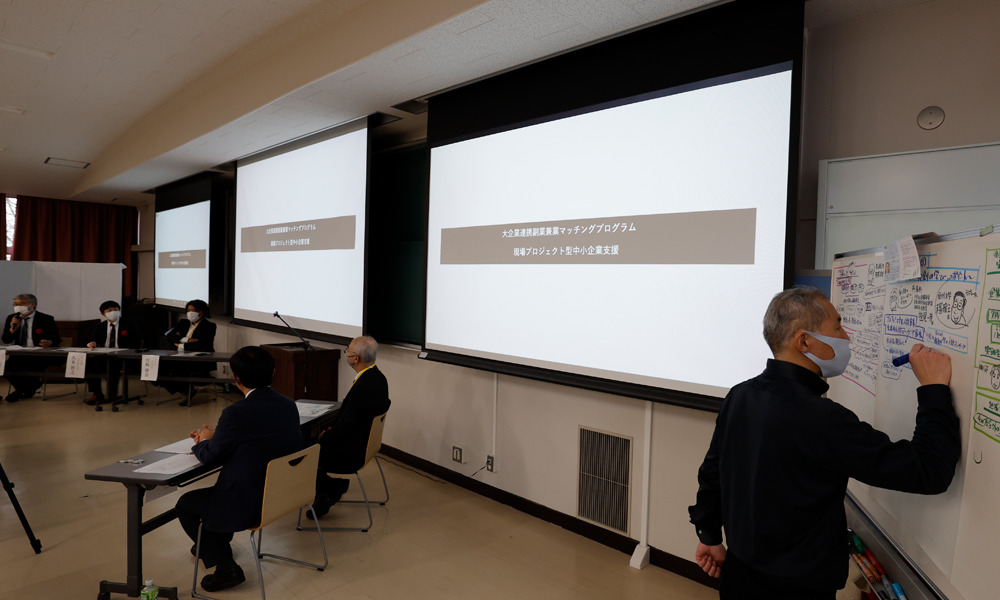
Practical exercises for solving "problems in the field" -- Okayama Prefectural University
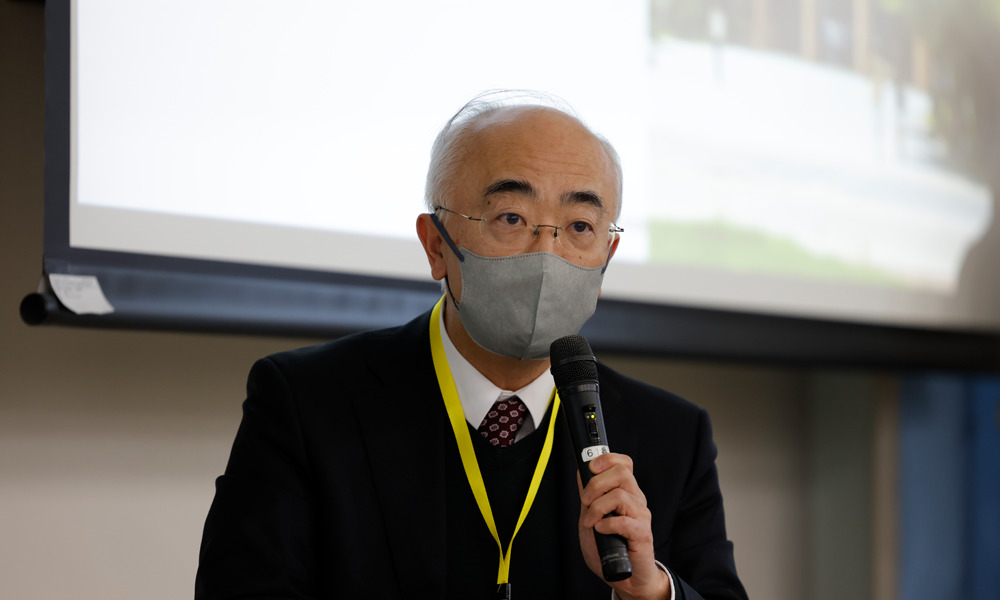
First, the "Kibi no Mori" creation strategy project by Professor Koji Sueoka of Okayama Prefectural University.Among them, we announced the "Collaborative Practical PBL Exercise Program".In order to solve on-site issues that companies face, young company employees and students/graduate students form teams to conduct practical exercises in collaboration.Themes are solicited from recipients and projects to be worked on are decided.Students and graduate students commute to companies for a set period.
In 4, 18 themes were set in the field of food, nutrition and health, 19 in the field of craftsmanship, and 9 in the field of timber and architectural design, according to the faculty structure of the university.In both cases, we ask companies to provide content with a high degree of importance.
Next, we introduce a case study of co-creation between graduate students of the Graduate School of Design and a manufacturer of attachments for construction machinery. Students selected and worked on themes from the fields of ICT and manufacturing.Specifically, in the development of a web application for creating nameplates to be attached to products, it is possible to easily operate and complete a web form without using a specialized design application.It was completed after a series of discussions, including specification decisions, design, and coding.
It was the first time for the participating graduate students to develop an app, but they learned that they were able to get involved in the work they wanted to do, saying, "By listening and researching on my own, I was able to solve problems and gain breakthroughs." I gotIn addition, the person in charge of the company gave the opinion that these skills were acquired by studying together with the students.Students and business people worked together one-on-one for 20 days with a sense of closeness.
Learning through co-creative education and practical internships—Tokushima University
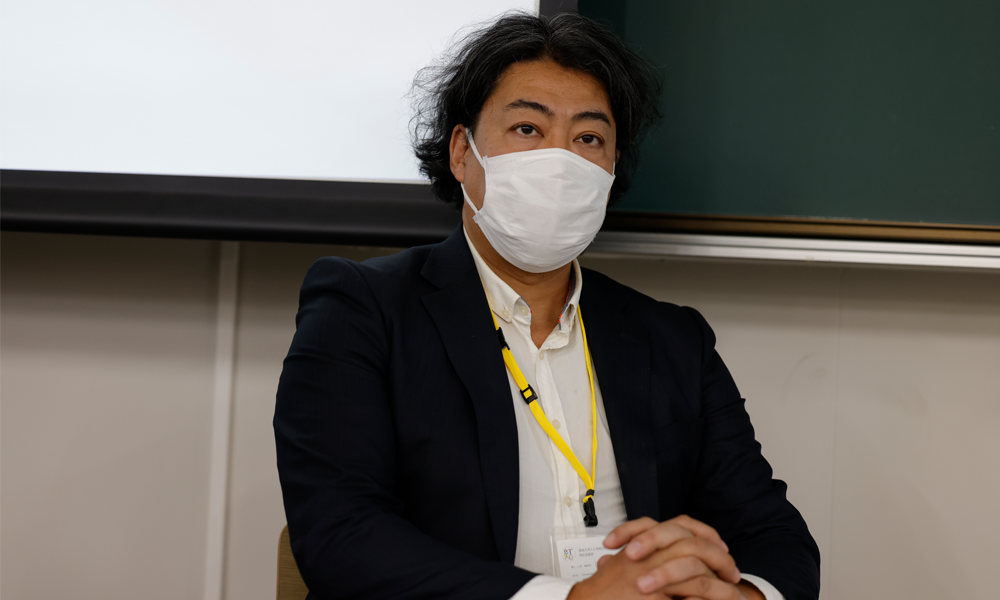
Next, Professor Shura Kawasaki of Tokushima University made a presentation.At the university, we have prepared a learning environment (curriculum) according to the grade in accordance with the purpose of co-creative education, "creating a relationship between symbols and students" and "collaborative internships that practice corporate issues."Two new types of internships have been developed: work experience internships (3rd and 4th graders) and proposal-type internships (graduate students).The former was introduced in 2, and I participated in a short-term internship for about 4 days during the summer vacation.The latter is scheduled to be introduced from the 5th year of Reiwa, in which students themselves negotiate with companies and design and carry out project-type internships.
Next, explanation about the main practical internship.We design a project based on a theme from the company, and employees work together as partners for half a year.
In addition, President Tomoyuki Kume of NDK Co., Ltd., who has been cooperating for four consecutive terms, will be able to learn the way of thinking and values realistically by working with current students in a practical internship over a long period of time.He said that this is the biggest attraction.President Kume himself has become good friends with the interns and continues to be friends with them.This is also one of the advantages.
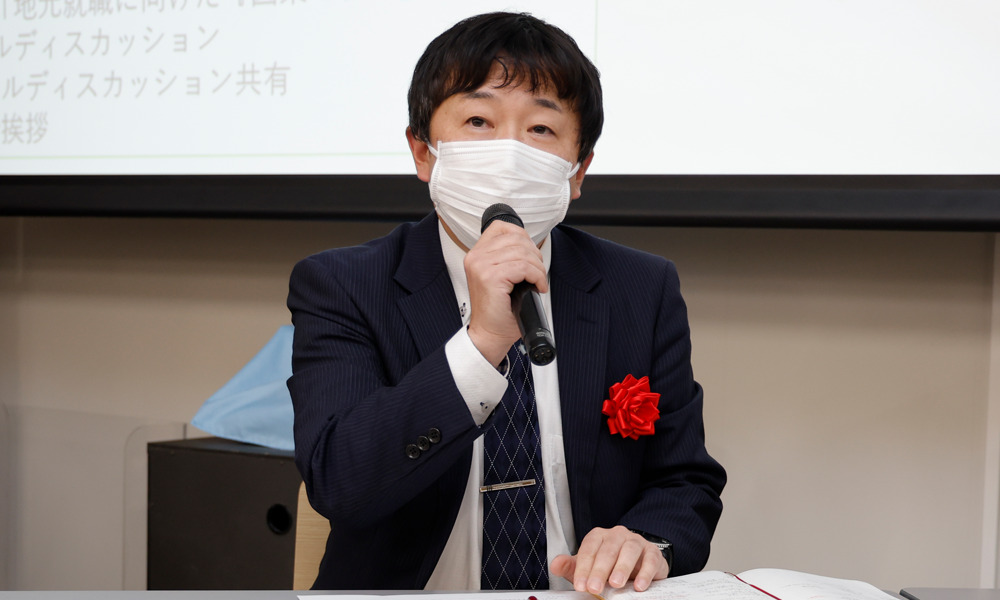
Professor Kawasaki took the mic again and introduced an example of a company that he had previously joined through a hands-on internship, where he is now working as a host.It is said that the range of activities was expanded and it was meaningful to meet various people.
Advanced Liberal Arts Education Program──Okayama Prefectural University

Another presentation from Okayama Prefectural University was about efforts to connect students with reskilling of working adults.This is a liberal arts education program for seniors, and was launched in the 3rd year of Reiwa in response to requests from companies in the prefecture to "want graduate students to be more educated."In 4, 83 students, twice as many as the previous year, took the course.This course is open to non-university students, and in 4, the number of students doubled to 106.We also launched a video site so that you can participate in the on-demand format.We also provided a place for exchange between graduate students and students taking courses outside the university, and held discussions within the university called "additional time."He said that in the 5th year of Reiwa, the number of subjects will be increased to 13 to enhance the curriculum.
In addition, the graduate school cross-section course, which is a course in the graduate school, was established to be useful before going to the PBL seminar, but in response to requests from outside the university to take it. Subjects such as "reading current affairs and history", "local society and business", and "regional resource studies" are lined up.
Some of the outsiders are executives of several companies, and they are very active.If the manager has a learning attitude, such a positive attitude will be born.
The university's project has created a variety of relationships with companies and organizations in the prefecture.In addition to providing a place to accept them, we are working to make "Kibi no Mori" a place for co-creative learning by interacting as external lecturers and external students.
Co-creation between students and local governments Local issue-oriented internship initiative ──Tokushima University
For the fourth example, Professor Kawasaki of Tokushima University made a presentation again about the regional issue-type internship that started in the 4th year of Reiwa.It is intended to work with local governments, etc., rather than companies, to address local issues.We carry out projects such as fishing as sightseeing and sports tourism, and the students' partners are the local revitalization cooperation corps.There are many working adults who are interested in Tokushima and are thinking of moving there, and many of them have skills that are difficult to acquire in Tokushima, making it the perfect place to work together on regional issues.
They are still discussing how to make this a sustainable effort.That in itself is a major achievement of this program.He said that he would like to manage continuing the relationship as a future issue.
Professional Human Resource Project, Leading Human Resource Matching Project ──Cabinet Secretariat Secretariat of the Council for the Realization of the Digital Garden City National Concept
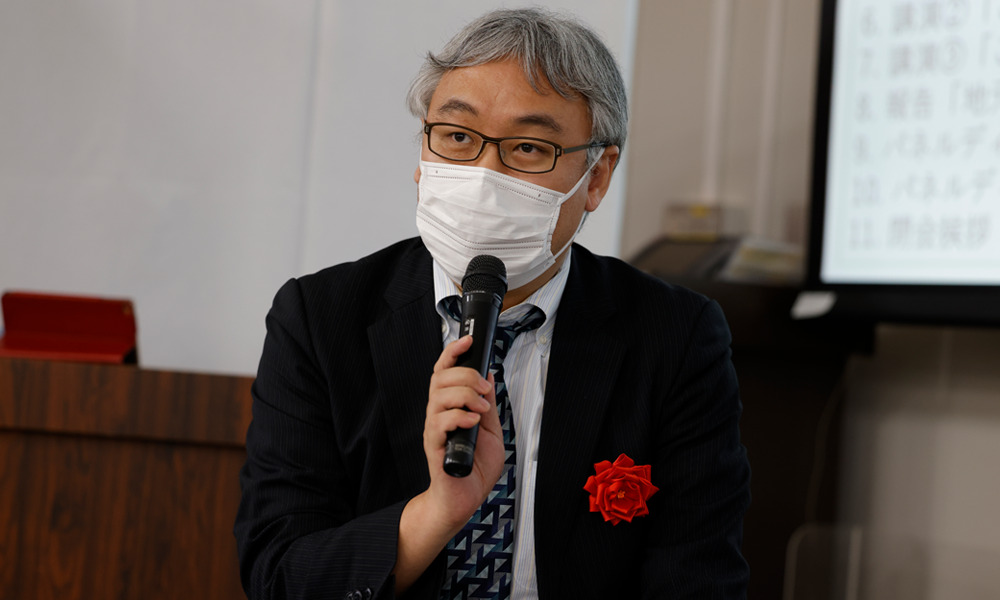
Finally, Mr. Kazuhiro Sasao of the Cabinet Secretariat made a presentation on the production of human resource matching.He also told me that his department is made up of people seconded from various ministries and agencies, and that his name is too long, so he nicknames it "Dejiden."The purpose is to promote regional revitalization using digital technology.As a key policy for demonstrating the promotion of circulation from urban areas to local areas, here we have taken up human resource matching support for local companies.There are two pillars in this: the professional human resources business conducted by 46 prefectures and the leading human resource matching business conducted by regional financial institutions.
In the professional human resources business, prefectural representatives visit companies and help them with their management issues.When recruiting human resources from outside, we team up with private human resources business operators.Another pioneering human resources matching business is to provide a success-based subsidy to companies and ventures in partnership with local financial institutions and venture capitals, etc. with recruitment agencies in order to quickly develop private companies.
And introduce the example in Hyogo Prefecture.In order to match side jobs to SMEs, we first conduct training using middle-aged and senior generations as escorts, making use of our contacts with the human resources departments of large companies.Hyogo's professional human resources strategy base and the University of Hyogo are also joining us to conduct a project to train coordinators for supporting financial institutions.In order to compensate for the lack of communication that is a problem of small and medium-sized enterprises, this is a program that creates vitality while staying close to them with external assistance.
Universities are “third places” that provide a place for various people to meet in the community.
After presenting the five case studies, we had time for wrap-up and discussion.The point of co-creation is to get students and working people, who usually have little interaction, to interact with each other.Depending on the theme, even industrial companies can accept non-science interns.With the addition of an unexpected student, the results are better than expected.Universities are like a “third place” where people from all walks of life interact.Universities should discuss social contributions as educational and research institutes.When students go out into the local community, it is important for them to recognize the various exchanges they have experienced at university as "good".
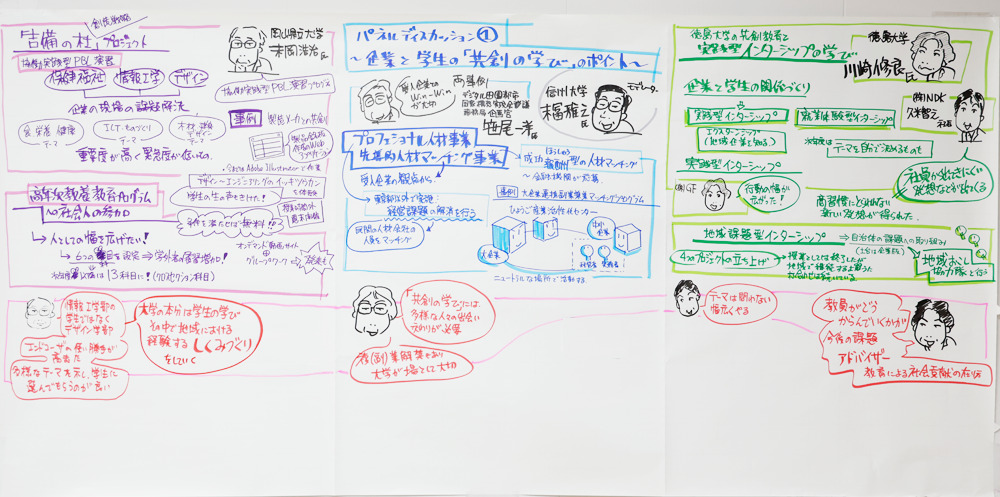
*The video of the symposium is open to all COC+R members.
●Symposium video list page
https://coc-r.jp/archives/

